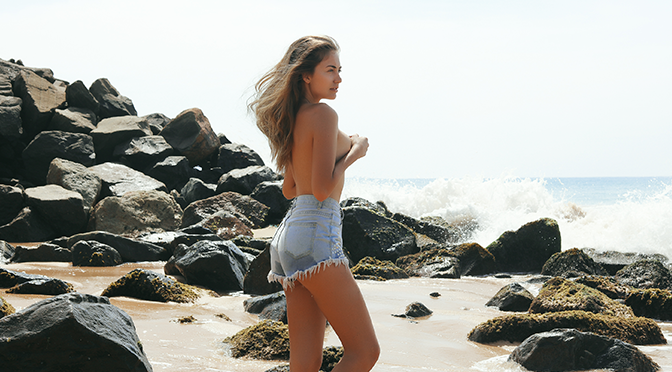Nudity in Competitive Reality TV
Ah, competitive reality TV. The land of fierce competition, strategic gameplay, and…naked bodies? That’s right, nudity has become a staple in some of our favorite shows- from Bachelor in Paradise to Naked and Afraid. But with the pressure to show off your body in front of millions, how are contestants navigating this territory? Let’s take a closer look.
First things first, let’s address the elephant in the room- why the heck are these shows so fixated on nudity? It’s no secret that sex sells, and nakedness tends to get people talking. Producers know that including nudity in a show will start conversations and keep viewers tuning in. And let’s be real, there’s something intriguing about watching people in their most vulnerable state- even if it is a little uncomfortable. But what about the people actually participating in these shows? How do they feel about baring it all on national television?
Unsurprisingly, there’s a lot of pressure on contestants to show off their bodies. After all, many of these shows are centered around physical attractiveness- being in shape and conventionally attractive can give you an edge. But for those who aren’t as comfortable disrobing in front of others, this can be a nightmare. Take the UK’s Love Island for example, which has faced backlash for casting mainly conventionally attractive people in the wake of suicides of former contestants. Clearly, the pressure to have a perfect body on these types of shows can have real psychological consequences.
But what about shows where nudity is required for survival, such as Discovery Channel’s Naked and Afraid? In these cases, the nudity is less about aesthetics and more about function. The show’s producers argue that it’s simply not realistic for contestants to be wearing clothes in the middle of nowhere. And while the nudity may help with survival, it certainly doesn’t make things more comfortable for the contestants- especially considering they’re often dealing with bug bites, sunburn, and other less-than-ideal conditions.
Of course, there are shows that manage to find a balance between nudity and dignity. Take Survivor for example, which has been on air for over 20 years and still avoids gratuitous nudity. Sure, contestants may end up in swimwear or less flattering clothing, but the focus is on their strategy and gameplay rather than their physiques. It’s possible to make an engaging show without sacrificing the dignity and comfort of the contestants.
Nudity is certainly a part of competitive reality TV- for better or for worse. While it can add an element of intrigue and spice up a show, there’s no denying the pressure it puts on contestants. If you’re a writer considering including nudity in your own work, it’s important to think about both the impact it’ll have on the show and the well-being of the people involved.
If you, as a writer, use such formats as a setting for your stories, it’s not very creative to reproduce the pressures that are on the contestants and often make them step over their shame thresholds. It is just as important to psychologically illuminate how the protagonists emotionally deal with the situation. Erotic literature should always be realistic to the extent that readers can find themselves in it.

